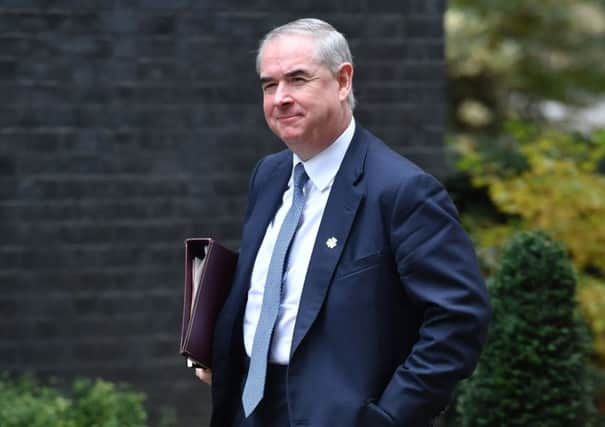Who is the Attorney General and what does he do?


In a vote in the House of Commons a couple of weeks ago MPs looked at a legal opinion written by the Attorney General. Who is the Attorney General and what does he do? Why does his opinion matter?
The Attorney General (AG) is one of the Law Officers of the Crown. His job (it is a “he” just now – Geoffrey Cox MP) is to act as the chief legal adviser to the Crown and to the Government.
Advertisement
Hide AdAdvertisement
Hide AdThe job has been in existence a long time –the first office-holder was William De Bonveville when the post was set up back in the 13th century.
At first it was not a political role. But in the 15th century it took on a political hue when the AG started to advise the House of Lords where the Government then was located.
Duties include overseeing the Crown Prosecution Service and the Serious Fraud Office and the Government Legal Department.
Geoffrey Cox is a qualified barrister and also a Conservative MP.
Advertisement
Hide AdAdvertisement
Hide AdBut although like the Prime Minister Theresa May Mr Cox is a Conservative MP the House of Commons (and others) is supposed to be able to rely upon him to produce an independent opinion on matters that come within his remit.
So not necessarily an opinion that members of his own party – or Mrs May –might like to see.
Where there is a point of law –or perhaps several points of law – which may affect Government policy or actions the AG is likely to be tasked with providing an opinion on – for example – the legal effect of draft documents or agreements.
This is where Brexit comes in. Mrs May went to the EU to seek amendments to the deal she has negotiated for the UK to withdraw from the EU.
Advertisement
Hide AdAdvertisement
Hide AdShe felt she had secured concessions set out in documents she brought back that meant the deal could get through the House of Commons.
She asked Mr Cox for his opinion about this –did the amended deal change the original deal sufficiently that MPs should feel able to vote for it?
Mr Cox’s opinion was that the risk of the UK having to remain – potentially against our wishes – in the “backstop” agreement in fact remained substantially unchanged.
To quote him: “The legal risk remains that … the United Kingdom would have ... no internationally lawful means of exiting …”
Advertisement
Hide AdAdvertisement
Hide AdSome commentators had wondered whether – being in the same party and a supporter of Mrs May – the AG might have been inclined to rubber-stamp what she wanted done.
One or two even suggested that the AG might be “leaned on” to produce the kind of opinion that was required.
Instead however Mr Cox produced a truly independent unbiased opinion which was not helpful to Mrs May.
Where are we now with Brexit in light of this and others developments recently?
Well – fortunately this is a question that Legal Eagle is not required to answer ...